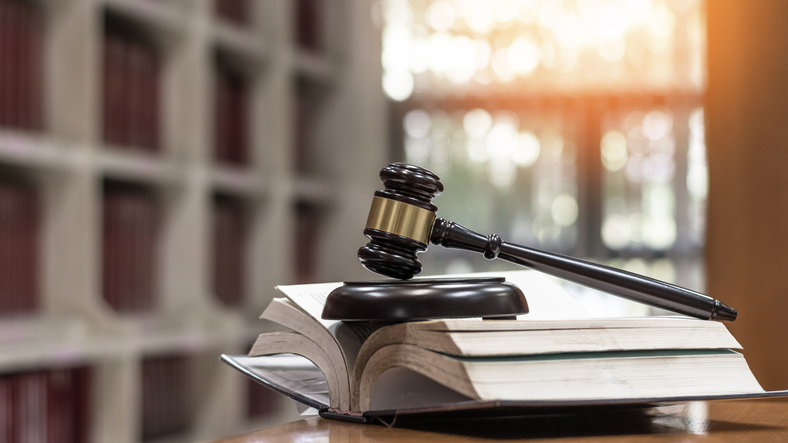Examining How Civil Law Serves Everyone
The civil justice system plays a vital role in keeping us safe and holding wrongdoers accountable. Through civil lawsuits, United States citizens can take action against negligent companies, dangerous products, environmental polluters, and bad actors who commit crimes, hate acts, and discrimination. The civil courts provide a crucial way to deter harmful conduct and compensate victims when other systems fail to protect the public. What is the purpose of the civil justice system then? To better society as a whole by holding accountable those who infringe on the safety and well-being of others.
At Mitchell, Hoffman & Wolf, we work exclusively through the civil justice system to represent our clients who have been harmed through the actions of negligent parties. We give them a voice in the civil justice system and work relentlessly to secure the compensation and justice they’re entitled to. Our personal injury expertise covers a wide range of areas, from medical malpractice and police misconduct to workplace accidents and auto accidents, and much more.
Previously, we’ve discussed the civil justice system as a whole. Today we’re taking a closer look at what the purpose of the civil justice system is and offer examples of how it makes all of us safer—whether or not we individually go to court.
What is the Purpose of the Civil Justice System? 3 Examples
How Does the Civil Justice System Make Us Safer?
One of the core functions of civil lawsuits is to create a strong financial incentive for companies to prioritize safety over profits. The threat of being sued and having to pay significant monetary damages is often the most effective way to compel manufacturers, hospitals, builders, and others to make safety their top priority.
Verdicts and settlements from civil suits have directly led to the removal of countless dangerous products and the elimination of hazardous practices that endangered lives. From the Ford Pinto to defective cribs, civil cases exposed these threats and made it financially unwise for companies to continue their reckless conduct.
In cases where criminal penalties exist on paper but are rarely enforced, civil liability can be the more effective deterrent. For example, despite laws against workplace safety violations, many companies continue to sacrifice employee protections to cut costs — until they are hit with multi-million dollar civil judgments. These lawsuits shine a light on unconscionable misconduct and impose real financial consequences, forcing systemic changes.
How Do Civil Lawsuits Help Victims of Crime, Hate and Discrimination?
While the criminal justice system is tasked with punishing offenders, it is inherently ill-equipped to properly compensate victims or provide them with a direct path to accountability. Civil courts fill this crucial gap. Survivors of crimes, hate acts, and discrimination can file civil suits against perpetrators to recover damages for physical, mental, and economic harm. Civil cases have proven to be one of the most effective ways to combat hate groups and discriminatory organizations.
How Do Civil Lawsuits Help Protect the Environment?
Environmental regulations are woefully under-enforced due to regulatory capture, self-reporting schemes by polluting industries, and a lack of resources for monitoring. This regulatory failure leaves civilians exposed to toxic contamination with little or no legal recourse.
Civil lawsuits have become a last line of defense, where victims of pollution can directly take on negligent companies and industrial polluters. These cases not only provide compensation for injuries and property damage but also force businesses to internalize the full costs of their environmentally destructive practices.
Unlike regulatory actions which often result in minimal fines seen as simply the cost of doing business, massive civil judgments impose a financial deterrent strong enough to change corporate behavior. As a result, civil suits have compelled the cleanup of toxic waste sites, prevention of further air and water pollution, and sweeping operational reforms to protect community health.
Contact Mitchell, Hoffman & Wolf Today
The civil justice system empowers Americans to fight for public safety, corporate accountability, and environmental justice when other regulatory systems fail. By allowing victims to directly confront wrongdoers, these cases promote reform, enforce standards, expose misconduct, and deter negligent actions that endanger lives. When examining what is the purpose of the civil justice system, it’s important to remember one thing: it provides a path to justice when other methods fall short.
If you or a loved one has been injured and wants to pursue justice and a settlement, turn to Mitchell, Hoffman & Wolf. Our firm has spent more than three decades dedicated to securing the best results for our clients, working within the civil justice system to fight for the needs of the people we represent.
While our firm doesn’t handle environmental work or delve deeply into civil rights cases, we do specialize in representing clients facing personal injury stemming from a wide range of causes, including:
- Auto accidents
- Workplace accidents
- Medical malpractice
- Nursing home negligence
- Police misconduct
- Church/School assault
Contact our team today for a free case assessment to learn how our team of experienced lawyers can help.

